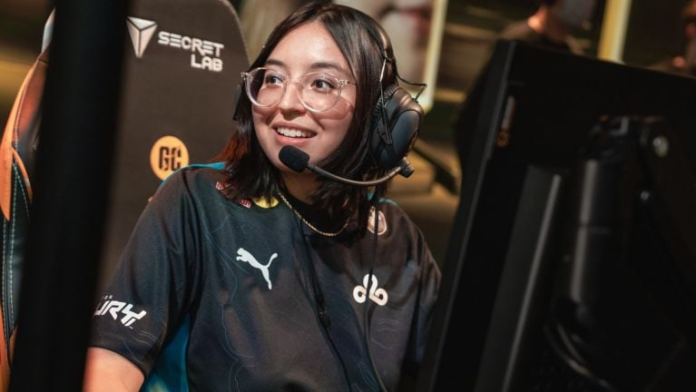According to esports reporter Slasher, Version1’s meL has been denied chances to practice and try-out with tier one teams by male players.
Last night, esports reporter Rod “Slasher” Breslau appeared on VCT caster Sean Gares’ stream, where the two discussed why skilled and popular female VALORANT players like Version1’s Melanie “meL” Capone seem perpetually unable to even trial with tier one teams.
“I have heard directly that this is why,” Slasher said on the stream in regards to meL. “She has tried multiple times to practice with tier one teams, and every single time there was at least one [male] player on each team that said that they did not want to play with a woman. And so she did not even get to the try-out phase.”
MeL is the second-most decorated in-game leader within the global VALORANT Game Changers ecosystem, beaten only by G2 captain Michaela “mimi” Lintrup. During MeL’s time with Cloud9, the squad were the undeniable best in North America, taking home six NA Game Changers trophies between 2021 and 2022. But despite that, it seems that sexism within tier one teams is creating a glass ceiling even she can’t break through.
This isn’t a new phenomenon in esports, particularly in tactical first-person shooters like VALORANT or Counter Strike: GO. Mimi faced similar discrimination during her time as a CS:GO pro, according to Slasher.
“I heard this exact same thing in Counter-Strike,” Slasher said. “[mimi] was the best female player… They had won every single championship in the women’s league, she was doing great, she was the best player on her team.
“And when I was speaking to her, she was telling me she couldn’t even try-out for tier two teams, or even tier three teams, for the exact same reason. Players on those teams did not want to practice with a woman.”
Another legend of the women’s Counter Strike scene, Julia “juliano” Kiran stated that she experienced the same treatment when she was at her peak performance level. She advocated for mixed teams, noting that she was denied try-outs and spots due to male players not wanting to play with a girl.
Some of the most talented players in the current Game Changers scene, like Version1’s Ava “florescent” Eugene, have voiced their aspirations to join a franchised league team in the future, but those ambitions may not live long if these practices continue.
Based on these experiences, it seems clear that the organizations behind these teams, and the VCT itself, will have to take action to prevent male players from gatekeeping their female colleagues if we actually want to see the best players out there get a fair shot.
About the author




